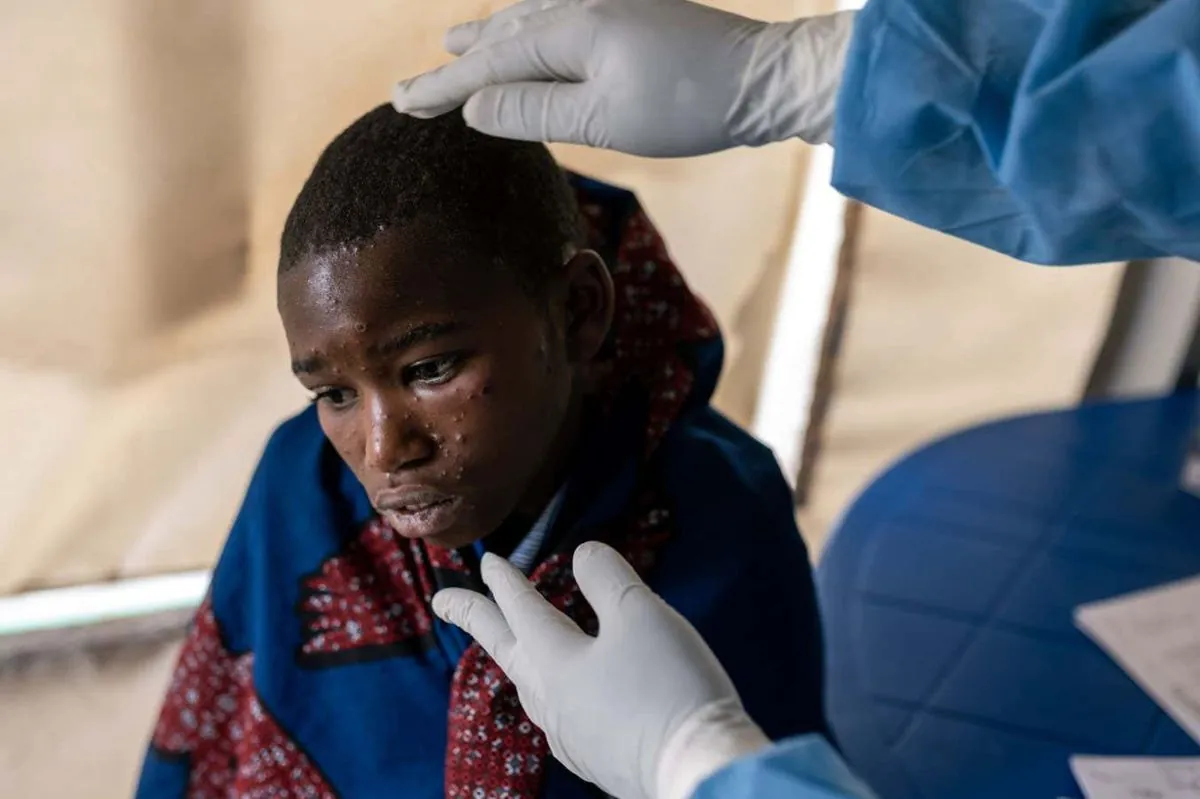DRC Mpox Crisis: Children at Risk as Basic Supplies Run Short
In the Democratic Republic of Congo, a severe mpox outbreak is claiming lives, particularly among children, due to a critical shortage of basic medical supplies. Healthcare workers struggle to provide care without essential resources.

The Democratic Republic of Congo (DRC) is grappling with a severe mpox outbreak, with children bearing the brunt of the crisis. Healthcare professionals are sounding the alarm over the lack of basic medical supplies, including soap and antibiotics, which is leading to preventable deaths.
In 2024, the DRC has reported over 15,600 mpox cases, with 537 fatalities. The majority of those affected are children, highlighting the vulnerability of this population to the disease. The outbreak has prompted the World Health Organization to declare a global health emergency.
Dr. Nathalie Strub-Wourgaft, a delegate of the Pandemic Preparedness Platform for Health and Emerging Infections Response (Panther), recently visited affected areas in western DRC. She described the situation as dire, with patients suffering from hundreds of painful lesions and open sores across their bodies.
"People are suffering like hell. What I saw was very sad. There are fantastic, dedicated doctors and nurses, people who really wanted to help. But they have so little means to help – no antiviral treatment, no vaccine, scarce ways of detecting and diagnosing patients."
The lack of basic supplies is particularly concerning. Healthcare workers are struggling to provide even the most fundamental care, such as keeping wounds clean and preventing secondary infections. This shortage has led to tragic outcomes, including the death of a two-week-old infant from a secondary infection due to the unavailability of antiseptics and antibiotics.
Mpox, first discovered in 1958 in research monkeys, has been known to affect humans since 1970. The virus belongs to the same family as smallpox and can cause severe symptoms, including fever, rash, and swollen lymph nodes. The incubation period typically ranges from 7 to 14 days, but can extend up to 21 days.

While research into specific mpox treatments continues, a recent study highlighted the importance of basic supportive care. A trial of the antiviral drug tecovirimat showed disappointing results in reducing lesion duration. However, the overall mortality rate among study participants was significantly lower than the national average, emphasizing the critical role of proper hospitalization and care.
Dr. Placide Mbala-Kingebeni, head of epidemiology and global health at the University of Kinshasa, stressed the need to focus on providing good standard care for patients, given the current lack of specific treatments.
The global response to mpox has been criticized for its slow pace. Dr. Ayoade Alakija, a special envoy for the WHO's Act-Accelerator panel, noted that the virus has been known for decades, but little attention was paid to developing treatments or vaccines until recent outbreaks in non-endemic countries.
As research continues, potential treatments such as brincidofovir, cidofovir, and NIOCH-14 are being explored. However, funding remains a significant challenge. Dr. Strub-Wourgaft emphasized the need for more resources to launch critical studies like the MOSA (Mpox Study Africa) trial, which aims to test multiple drugs for different mpox clades across Africa.
The ongoing crisis in the DRC underscores the urgent need for increased attention and resources to combat mpox. As the international community grapples with this health emergency, the lives of many, especially children, hang in the balance.


































